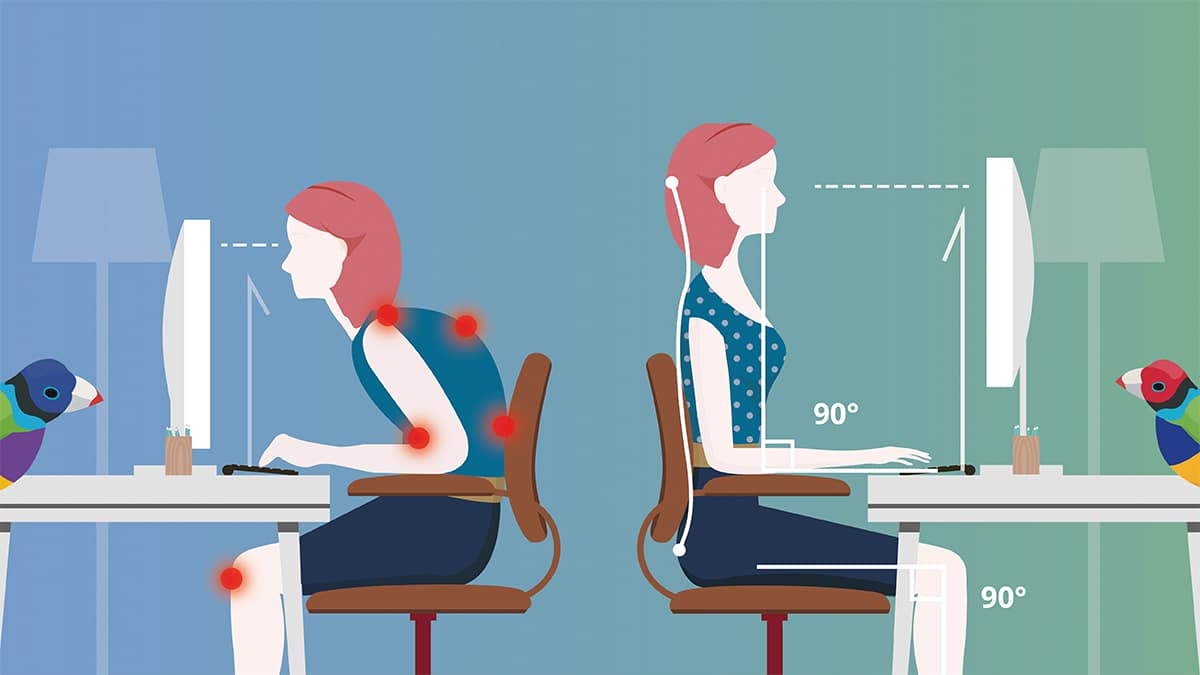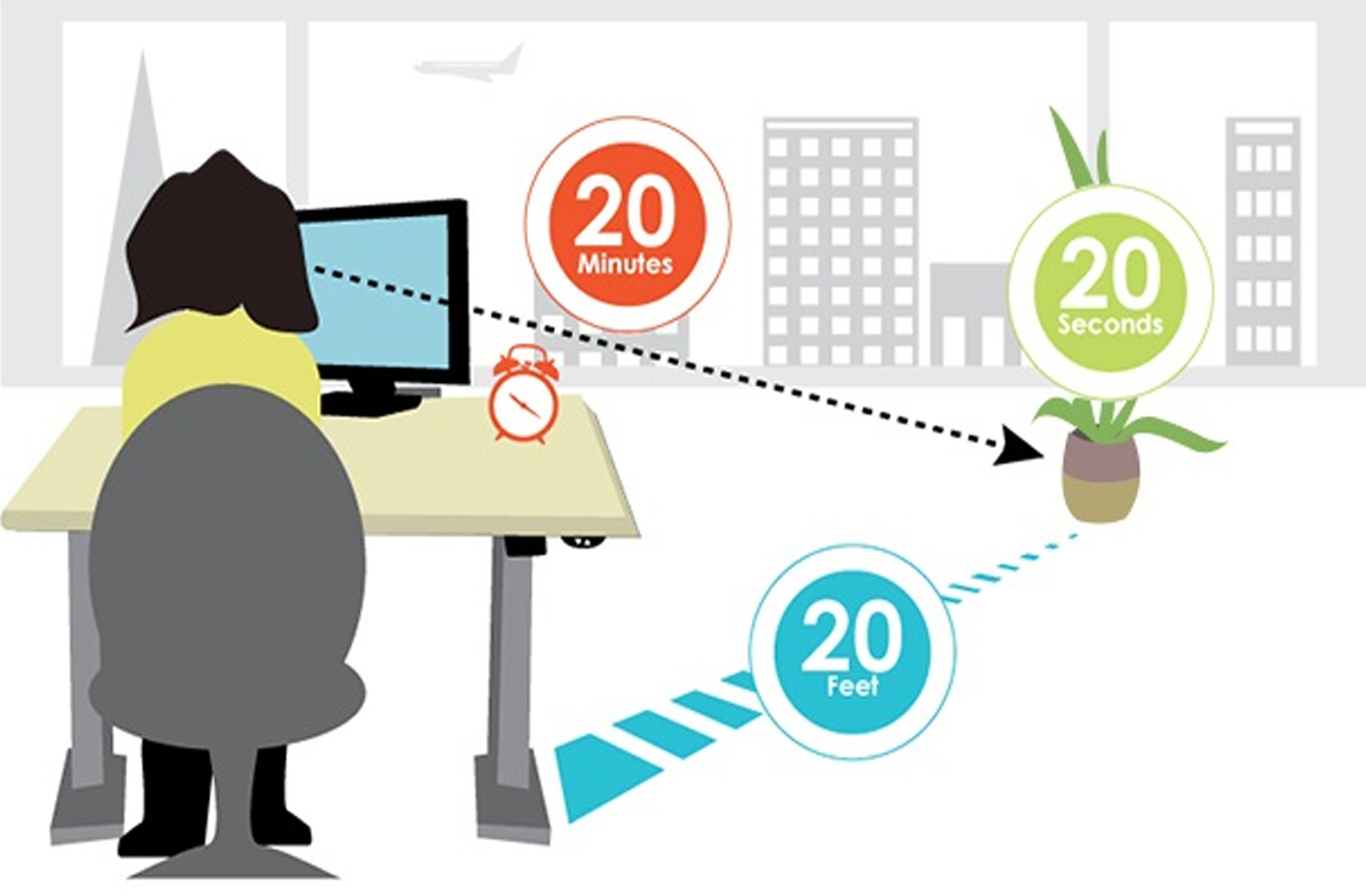Computer vision syndrome (CVS), or often referred to as visual fatigue and digital eye strain, is a term for a collection of symptoms associated with eye disorders caused by the prolonged use of computer-based electronic devices, such as laptops, desktops, cellphones, and tablets. With the rise of technology, many of us experience this in different forms such as eyestrain, headaches, ocular pain, blurry vision, dry eyes and neck or shoulder pain. The moment you feel these signs appear, then you will need to apply the tips below to relieve the pain.
Here are the tips to relieve your pain:
Adjust the height of your Computer

Make your viewing experience more comfortable by placing the computer in the center of your eyesight, about five to nine inches below the horizontal line of sight. Ideally, you would be looking just over the top of the computer screen in the straight line of your sight. This way, your eyes will not be strained and forced to concentrate on a certain point but will be comfortably hovering on the computer screen.
Give your eyes a break

Other than making your eyes more comfortable for reading gadgets, there are times when your eyes will need a break. It’s not meant to see at a close distance for long hours. One of the tried-and-tested ways is to follow the 20-20-20 rule. Take a break every 20-minutes and look at any object at least 20 feet away from you for 20 seconds. Not only will you be paying attention to the item 20 feet away, you’re your eyes will also wander to different objects at various distances.
Blink

While concentrating on the computer screen, most of us will often forget to blink and instead do a partial lid closure or blink less frequently. This causes most of us to experience dry eyes. It becomes even worse in air-conditioned rooms, where the air in many offices is dry. Blinking, on the other hand, moistens our eyes and helps prevent dryness and irritation. If your dry eyes are causing your problems on your daily life, visit the doctor. They will most probably give you artificial tears. Alternatively, you can try blinking slowly for, like when you are about to fall asleep. Repeat for 10 times. This might help in getting your eyes wet.
Get Vitamin A

If fatigued eyes are not the only issues you are having, then your doctor may prescribe you necessary vitamins. Diligently take these vitamins while also eating vitamin-rich foods, especially those that have Vitamin A. Food items rich in Vitamin A include cheese, egg yolk, milk, and butter. This is important for a healthy vision and reinforces the macular tissues in your eyes, thus, keeping your vision clear and sharp.
Keep your devices further away from your eyes

As been said previously, putting your eyes at ease by reducing its focus should be done to prevent eye fatigue. There are some who hold digital devices closer to the eyes than they would if they were reading a book or any other printed material. Doing this is very dangerous for your eyes, as they are at greater risk of straining their eyes. Screens emit blue light that already causes eye strain, but putting it closer to your eyes puts more stress to your eyes. Any gadget with screens must therefore be held as far as possible from the eyes. You may try enlarging the print for comfortable reading.
Install a Humidifier

Air conditioner may cool the area, but it also makes the area very dry. This does not only affect your skin but most of all your eyes. Counter the drying effects of air conditioner by keeping a humidifier. You may try keeping some real plants in and around your work area or keeping an air humidifier. This helps in increasing the air humidity. Artificially controlling the humidity of your work environment helps reduce eye strain.
Drink Water

Drinking water not only affects our body system, but also includes the eyes. You should therefore drink a sufficient amount of water every day to keep your body and your eyes hydrated, which prevents dry eyes. On average, a person should drink eight glasses of water a day. However, healthy water intake always relies on your size and weight and whether you exercise every day. You can ask your physician about the recommended water intake for you to keep your body hydrated and eyes healthy.
Have you tried any of these tips above? Which one seems more effective? Tell us in the comment section below!





